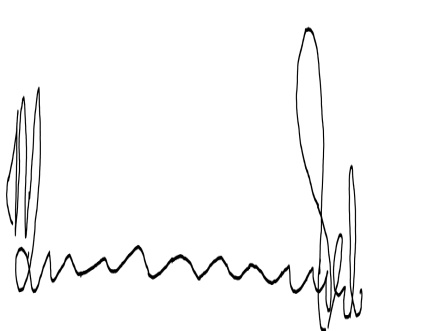IN THE COURT OF APPEAL OF LESOTHO
HELD AT MASERU C OF A (CIV) NO. 25/2022
In the matter between:
RAMOHALALI LEBONAJOANG APPELLANT
AND
ACTING COMMISSIONER OF LESOTHO
CORRECTIONAL SERVICE 1stRESPONDENT
THE ATTORNEY GENERAL 2ndRESPONDENT
CORAM: DAMASEB AJA,
MUSONDA AJA,
CHINHENGO AJA,
DATE OF HEARING : 17 OCTOBER 2022
ORDER DELIVERED : 11 NOVEMBER 2022
SUMMARY
Where an employee is dismissed after a disciplinary hearing which he elected not to participate in, upon being invited to make representations before his dismissal, he was entitled to be given a copy of the record of proceedings that led to his conviction, so that he could meaningfully make representations before sanction.
JUDGMENT
P Musonda AJA:
Background
This is an appeal against a judgment and order of Monapathi J in which the court a quo dismissed an application by the appellant seeking to review and set aside his dismissal from the Lesotho Correctional Service for insubordination.
The appellant, Mr Lebonajoang, was a member of the Lesotho Correctional Service until his dismissal, with immediate effect, on
12 October 2016, by the 1st respondent. The 1strespondent was the acting Commissioner of the Lesotho Correctional Service at the time.
The facts
The events that led to the appellant’s dismissal can be stated briefly. Sometime in March 2015 Mr Lebonajoang had been charged with and found guilty of a disciplinary offence of assaulting and threatening a superior with a gun. He was then demoted to a junior rank.
On 6 January 2016, the appellant was charged with insubordination by threatening another superior contrary to Rule 156 of the Lesotho Correctional Service Rules 1957. He was informed of the date of hearing but elected not to attend the hearing and was found guilty in his absence.
Based on the grounds of appeal, the appellant does not take issue with the propriety of his conviction. Therefore, nothing further needs to be said about the conviction.
The appeal turns on whether the subsequent dismissal was lawful without him having been provided with the record of the disciplinary proceedings to enable him to make representations before a determination of the sanction.
It is common cause that after Mr Lebonajoang was found guilty of insubordination, he was presented with a show cause letter on 7 September 2016, asking –
‘why a recommendation of dismissal against you cannot be confirmed. Your reason(s) should reach the office of the Commissioner within twenty-one working days upon receipt of this letter. Please be cognisant of the fact that, should you fail to advance such reasons within the stipulated period, you will leave this office with no option but to confirm such dismissal and thereby dismiss you from the service’.
The appellant sought a review and setting aside of his dismissal. One of the grounds that he put up in that regard is that:
‘I was supposed to have been put in possession of the record of the proceedings against me before I was required to make representations, a real one having the benefit of allegations levelled against me and the failure by the 1st Respondent o observe that rendered my right to make representations an illusory one. I must state at this juncture that I did contest that it is impossible for me to react to the show cause letter in the absence of the proceedings record but 1st Respondent did not entertain my contention. I am further advised and verily believe the same advice also to be true and correct that I was supposed to be properly appraised of the information and reasons that underlie the impending decision and the materiality of the information because of the seriousness of the decision against me, viz dismissal. I aver that the recommendations made, which 1st Respondent relied upon to terminate my employment adversely affects my right and as such I ought to have been given the reasons before I was requested to make representations. I aver that I was denied a fair hearing’.
The Commissioners’ answer to the above assertion was to deny that the appellant was entitled to be provided a copy of the record of proceedings. Not only does the Commissioner conceded that ‘it is true that I made a decision before the expiring of twenty on (21) days’, but she goes on to state that ‘there is no legal duty on my part to provide Applicant or any other accused officer with a record of disciplinary record before I could make my decision against him . . . same is the responsibility of, Applicant and or the accused Officer. . .’ According to her the relevant Regulations impose no such duty.
The matter was heard by Manapathi J who agreed with the Commissioner that there was no duty on the 1st respondent to provide the record of proceedings before a sanction was imposed.
According to the learned judge a quo:
‘In this case the court is unable to see, which proceedings would be vitiated by the denial or refusal to furnish the record of proceedings requested by the applicant. As the proceedings had long been held in his absence and what was left was the reception of the recommendation following the hearing. Meaning the horse has since bolted or the train had long left the station and applicant was aware of this fact. This is evidenced by the long representations made by the applicant, which would have been ideally made at the opportunity for a hearing he was given, but which he wilfully choose not to take to his detriment. Likewise, in this instance it is hard to see how applicant would have been prejudiced or how the proceedings would have been vitiated by failure to furnish the record of proceedings. When applicant himself choose not to attend the scheduled disciplinary hearing and did not state whether he sought it for an actual, intended or any legally envisaged rehearing. Thus, the answer yet again to the question whether the denial or refusal to furnish or provide the record of proceedings vitiated the proceedings? Still lies in the negative’.
The appeal lies against that finding.
The relevant ground of appeal states:
‘the leaned judge misdirected himself by conflating the issue of record and confining his attention to disciplinary hearing only and thus failing to review a conduct of Commissioner to dismiss appellant without first affording appellant the record of disciplinary hearing’.
He adds:
‘it is prerequisite that a decision to dismiss appellant is/were two-prolonged; first it is hearing where the evidence was led and recommendation made to Commissioner, secondly Commissioner gives/invite appellant to participate as to why he may not confirm the recommendation and for that exercise a record was essential’.
On appeal the Commissioners’ counsel persisted with the posture that there was no obligation under the Correctional Service Rules for the appellant to be furnished with the record.
Issue for determination
Whether there is a duty on the first respondent to give the appellant a disciplinary record post the conviction but prior to dismissal.
Law
The legal principles dictating the approach in matters of this kind appear from the statement in this court by Gauntlett JA in Matebesi v Director of Immigration & others.1 As explained by Gauntlett JA in his earlier quoted dictum from Matebesi2, the requirements of fair procedure, which includes the audi principle, have ‘more recently mutated to an acceptance of a more supple and encompassing duty to act fairly’.3 Whenever a statute empowers a public official or body to do an act or give a decision prejudicially affecting an individual in her liberty or property or existing rights, unless the statute expressly or by implication indicates the contrary, that person is entitled to the application of the audi alteram partem principle.4The duty to act fairly is a constitutional imperative. That duty has the corollary right that the person affected must be afforded the opportunity to make representations before a decision adverse to his or her interests is taken.
Consideration of the appeal
According to the Commissioner, the appellant did not ask for the record. That assertion is undermined by her admission that she took the dismissal decision before the expiry of her own self-imposed procedure which create a right in favour of the appellant that he could make representations up the last day of the 21-one days the appellant had to make representations.
There is merit in the appellant’s complaint that there was a duty (and a correlative right for his benefit) for the Commissioner to make the record of proceedings of the hearing that resulted in the conviction available to the appellant to enable him to make representations before the sanction was imposed. That duty was made all the more important by the fact that the appellant was absent at the hearing although due to his own doing.
Because the appellant was absent at the hearing on the merits, he would not have known what was said and by whom. There could have been material on the record which was favourable to him which he could use to his advantage in the representations. Similarly, there could be other material which he could assert should be approachable with caution because, for example, it came from individuals who were biased against him.
Disposal
In those circumstance, how could he meaningfully make any representation without a record? The High Court erred in not drawing a clear distinction between the hearing on the merits and the second phase of a disciplinary process – imposing a sanction. The fact that Mr Lebonajoang chose to ignore the hearing on whether or not he should be convicted is no warrant for concluding that he forfeited the right to a fair hearing when it comes to sentencing. He has a right during the second phase to be afforded every facility – which includes the record of the proceedings – to make meaningful representations.
Therefore, the court a quo clearly misdirected itself in coming to the conclusion that the appellant was not entitled to be furnished with the record of the disciplinary hearing.
As far as a remedy goes, this is not an appropriate case where the appellant is entitled to a reinstatement for the unlawful conduct of the 1st respondent. The appropriate remedy is to review and set aside the dismissal, direct that he be furnished with the record of proceedings so that he can make representations, if so advised, within a stated period.
Order
The appeal succeeds with costs to be paid by the respondents, jointly and severally the one paying the other to be absolved.
The High Court order is set aside and substituted with the following:
“1. The 1st respondent shall deliver to the applicant the record of the disciplinary proceedings resulting in applicant’s dismissal.
2. Upon receipt of the record delivered in terms of paragraph 1, the applicant shall respond to the show –cause letter written to him by the 1st respondent in such manner as the 1st respondent directs, after which the 1st respondent shall make her determination as circumstances require.”

_____________________________
P. MUSONDA
ACTING JUSTICE OF APPEAL
I agree:

_______________________________
P.T. DAMASEB
ACTING JUSTICE OF APPEAL
I agree:
![]()
_______________________________
M.H. CHINHENGO
ACTING JUSTICE OF APPEAL
For the Appellants: Adv. N. Mafaesa
Instructed by Messrs K. D. Mabulu & Co
For the Respondent: Adv. L.P. Moshoeshoe
Instructed by F/ Attorney General
1 Matebesi v Director of Immigration & others [1998] JOL 4099 (Les A) [1998] LSCA 83 at 7-8.
2Ibid.
3 The President of the Court of Appeal v The Prime Minister and Others C of A (CIV) No 62/2013 at para
4 Attorney General, Eastern Cape v Blom 1988 (4) SA 645 (A) at 661A-B; SA Roads Board v Johannesburg City Council 1991 (4) SA1 (A) at 10J-11B; Du Preez v Truth and Reconciliation Commission 1997 (3) SA 204 (A) at 231C-D).
Cited documents 1
Judgment 1
| 1. | Matebesi v Director of Immigration and Others (C of A (CIV) 2 of 96) [1998] LSCA 83 (31 July 1998) | 3 citations |